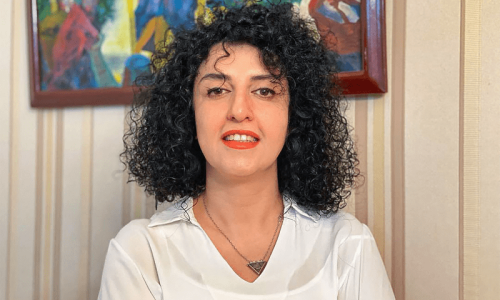HONG KONG: Beijing effectively barred two pro-independence lawmakers from Hong Kong’s legislature on Monday, prompting one legislator to pronounce that the city’s rule of law was “dead”.
It is the latest chapter of political turmoil for the semi-autonomous city as fears grow that China is tightening its grip, and comes just over two years since Beijing issued an edict which plunged Hong Kong into months of protests.
That ruling in 2014, which said candidates for city leader must be vetted by a pro-Beijing committee, sparked massive rallies known as the “Umbrella Movement”.
Now the city is bracing for another backlash as Beijing said it will not allow the two lawmakers to be sworn into office.
Beijing’s ruling was met with fury and dismay by pro-democracy lawmakers and commentators.
“The rule of law in Hong Kong is dead,” pro-democracy lawmaker Claudia Mo said.
“It’s rule by decree. Hong Kong may need to live under fear from now on.” Other lawmakers questioned where Beijing would draw the line and voiced concern that freedom of expression in politics would be further curtailed.
Political analyst Joseph Cheng said Beijing’s decision showed political considerations had taken precedence “over the long-term value of the preservation of the effective functioning of the rule of law” in the city.
The crisis came after rebel lawmakers Baggio Leung and Yau Wai-ching deliberately misread their oaths of office last month, inserting expletives and derogatory terms, and draping themselves with “Hong Kong is not China” flags.
They were initially granted a second chance at swearing in but authorities in Hong Kong and Beijing have stepped in to prevent that.
Beijing’s intervention pre-empts a decision by Hong Kong’s High Court into whether Baggio and Yau should be disqualified from taking up their seats.
That court decision is still pending.
Pro-independence protesters clashed with police on Sunday night in anticipation of Beijing’s ruling, with riot officers firing pepper spray on the crowds.
In a rare interpretation of Hong Kong’s constitution on Monday, Beijing said any oath taker who does not follow the prescribed wording of oath, “or takes the oath in a manner which is not sincere or not solemn”, should be disqualified.
Beijing’s foreign ministry said the move would “cap pro-independence forces” and safeguard Hong Kong’s prosperity and stability.
City leader Leung Chun-ying said he would “fully implement” Beijing’s ruling.
Leung also said the emergence of the pro-independence movement had put a controversial anti-subversion security law, Article 23, back on the table.
That was previously shelved after massive public protests in 2003 which feared it would lead to suppression.
Published in Dawn November 8th, 2016













































